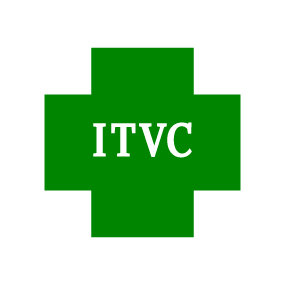Polio vaccine is advisable for the travelers intending to travel to Asia. Injectable Polio is also available those for those who are on chemotherapy and immune deficiency problems.
Information about Polio
What is polio?
Polio is a disease caused by a virus that affects the nervous system and is mainly spread by person-to-person contact. Polio can also be spread by drinking water or other drinks or eating raw or undercooked food that are contaminated with the feces of an infected person.
Most people with polio do not feel sick. Some people have only minor symptoms, such as fever, tiredness, nausea, headache, nasal congestion, sore throat, cough, stiffness in the neck and back, and pain in the arms and legs. Most people recover completely. In rare cases, polio infection causes permanent loss of muscle function in the arms or legs (usually the legs) or if there is loss of function of the muscles used for breathing or infection of the brain, death can occur.
New: Polio Vaccine Requirements
If you are traveling to one of the following countries (that has active spread of poliovirus in the past 12 months) for more than 4 weeks, the government of the country may require you to show proof of polio vaccination when you are exiting that country: Afghanistan, Burma (Myanmar), Guinea, Laos, Madagascar, Nigeria, Pakistan, and Ukraine. (This list may change frequently.) Talk to ITVC Travel Doctorif you have questions about this requirement.
If you get the polio vaccine before traveling to one of the countries listed above, you should be given a yellow card called the International Certificate of Vaccination or Prophylaxis (IVCP) that states when you were vaccinated.
From the late 1940s to the early 1950s, polio crippled around 35,000 people each year.
The Global Polio Eradication Initiative was launched in 1988, with CDC as a leading partner to stop the spread of polio. Substantial progress has been made in recent years, and only 3 countries remain where polio has never been stopped: Afghanistan, Nigeria, and Pakistan. The affected areas in these 3 countries have become smaller. However, polio has been exported to countries that have previously been polio-free, and 7 other countries have had cases of wild poliovirus and spread of polio in the last 12 months. Until polio is stopped everywhere, even polio-free countries are at risk for outbreaks.
Who is at risk?
Travelers going to certain parts of Africa and Asia may be at risk for polio. Everyone should be up-to-date with their routine polio vaccination series. In addition, a one-time adult polio vaccine booster dose is recommended for travelers to certain countries.
What can travelers do to prevent polio?
Get the polio vaccine:
• Ask your ITVC Travel Doctor to find out if you are up-to-date with your polio vaccination and whether you need a booster dose before traveling. Even if you were vaccinated as a child or have been sick with polio before, you may need a booster dose to make sure that you are protected.
• Precautions to protect from catching Polio
• Make sure children are up to date with their vaccination regime
Eat safe foods and drink safe beverages:
Follow the Food and Water Safety (see our travel tips page) tips to avoid exposure to any food and drinks that could be contaminated with the feces of a person infected with polio.
Practice hygiene and cleanliness:
• Wash your hands often.
• If soap and water aren’t available, clean hands with hand sanitizer (containing at least 60% alcohol).
• Don’t touch your eyes, nose, or mouth. If you need to touch your face, make sure your hands are clean.
• Cover your mouth and nose with a tissue or your sleeve (not your hands) when coughing or sneezing.
• Try to avoid close contact, such as kissing, hugging, or sharing eating utensils or cups with people who are sick.


